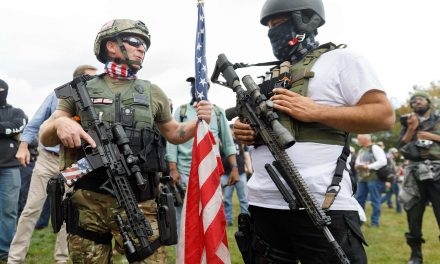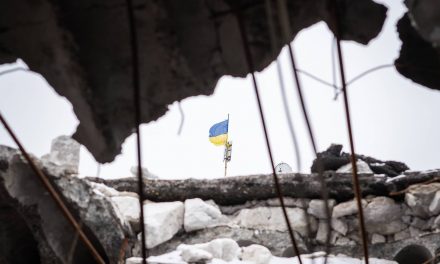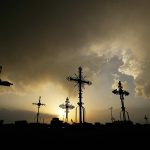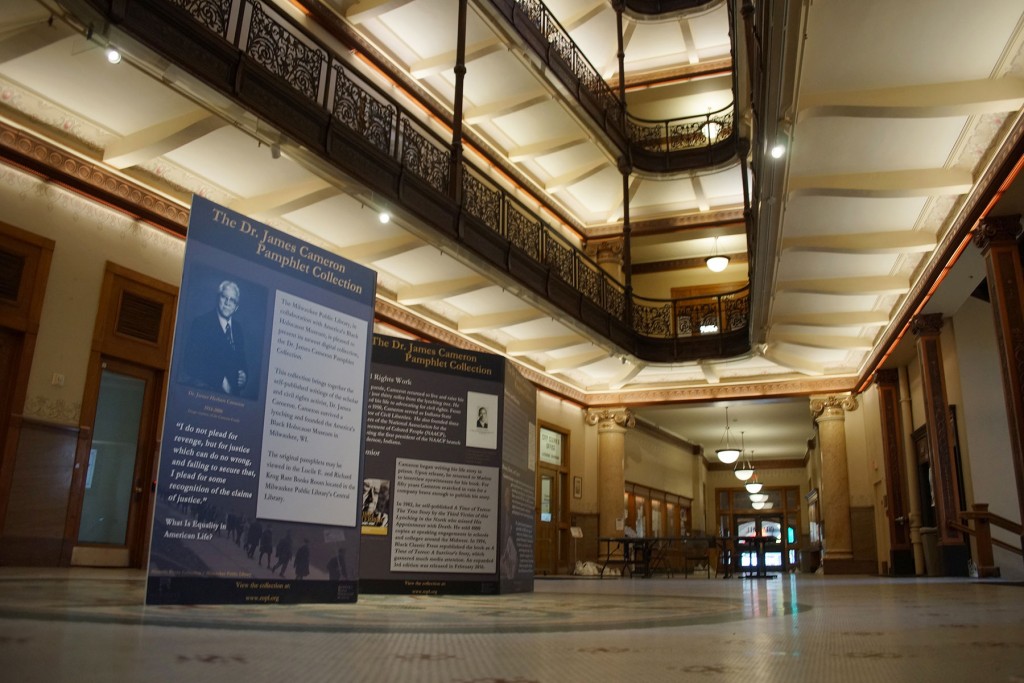
Ukraine’s President Zelenskyy proposed on March 16 that the world create a new agency, one that is well-armed enough to take on the most powerful nations, to defend smaller countries and, particularly, smaller democracies that are under attack from larger nations.
The American press is ignoring it. But it’s the opening for a conversation the world should engage now, as democracies around the world are increasingly failing and under attack.
As Freedom House noted:
“The present threat to democracy is the product of 16 consecutive years of decline in global freedom. A total of 60 countries suffered declines over the past year, while only 25 improved. As of today, some 38 percent of the global population live in Not Free countries, the highest proportion since 1997. Only about 20 percent now live in Free countries….”
Zelenskyy began by pointing out that Russia’s attack on Ukraine wasn’t just a land-grab; it was also an attempt to destroy a democracy on Russia’s borders, a vital and vibrant democracy that was offering an uncomfortable alternative to Putin’s strongman oligarchy.
“Russia has attacked not just us, not just our land, not just our cities,” Zelenskyy told the US Congress, “it went on a brutal offensive against our values, basic human values. It threw tanks and planes against our freedom, against our right to live freely in our own country, choosing our own future.”
Ukraine had previously trusted that the Budapest Memorandum, signed by US President Clinton, Russian President Boris Yeltsin, Ukrainian President Leonid Kuchma, and British Prime Minister John Major on Dec. 5, 1994, would protect their integrity as a nation after they gave up over 1900 nuclear weapons in exchange for a promise of peace.
As I noted recently, it required the U.S., Russia, and the UK to respect the borders of Ukraine. Tragically, as Ukraine discovered in 2014 when Russia walked in and annexed Crimea, the Budapest Memorandum didn’t have an enforcement mechanism. It’s sort of like passing a law in your town that outlaws burglary but also fires the police department and the courts.
Similarly, while the UN has peacekeeping troops and every European nation has its own small military, there is no international or multinational force large enough to protect non-NATO small nations from attack by larger ones, particularly when the larger ones gang up together.
We saw this writ large recently when George W. Bush and Dick Cheney infamously lied us and 48 other “coalition of the willing” nations into attacking Iraq and wreaking devastation on that nation for two decades in ways that were even more severe (so far) in terms of lost lives and property destruction than the Russian attack on Ukraine.
My generation saw the same happen when LBJ lied us into the Vietnam War — and the slaughter of an estimated 2 million Vietnamese people (and Nixon’s bombing of civilians in Cambodia and Laos) — after that country had driven out the French.
America has always liked to believe we’re the “good guys,” and sometimes we were. Franklin Roosevelt invoked that when he roused the nation a year before we entered World War II with his December 29, 1940, speech to the nation calling for armament in defense of Great Britain:
“The experience of the past two years has proven beyond doubt that no nation can appease the Nazis. No man can tame a tiger into a kitten by stroking it.
“There can be no appeasement with ruthlessness. There can be no reasoning with an incendiary bomb. We know now that a nation can have peace with the Nazis only at the price of total surrender.”
Roosevelt’s speech was a call for both moral clarity and national unity:
“But we well know that we cannot escape danger, or the fear of it, by crawling into bed and pulling the covers over our heads.”
It was also a clear statement of the dangers well-armed anti-democratic dictatorships present to the world:
“The history of recent years proves that shootings and chains and concentration camps are not simply the transient tools but the very altars of modern dictatorships.
“They may talk of a ‘new order’ in the world, but what they have in mind is but a revival of the oldest and the worst tyranny. In that there is no liberty, no religion, no hope.”
At that time, the League of Nations had collapsed and the UN did not yet exist. There was no international body to which a country under attack — or a country that wanted to join the defense of a country under attack — could turn. As a last resort, FDR said that America must become “the great arsenal of democracy” for the world.
But the UN — even in the face of dissenting voices who pointed out America’s lies in both Vietnam and Iraq, and now are pointing out Russia’s lies with regard to Ukraine — has been powerless to stop outlaw nations bent on the conquest of others’ land and theft of their resources.
Thus, President Zelenskyy proposed a new international body with sufficient weaponry to — within 24 hours — rush to the defense of a nation coming under the sort of illegal attacks Russia has launched in Ukraine and, if extended even to non-democratic smaller nations, the US’s illegal bombing of both Iraq and Vietnam.
He noted that Ukraine was already part of the United Nations, and most of the member nations of the world have already spoken out against the Russian invasion.
But it didn’t deter Putin. Thus, Zelenskyy said:
“We need to create new tools to respond quickly and stop the war, the full-scale Russian invasion of Ukraine, which began on February 24th. …
“Today the world does not have such tools. The war of the past have prompted our predecessors to create institutions that should protect us from war, but they unfortunately don’t work.
We see it, you see it, so we need new ones, new institutions, new alliances and we offer them.”
Oddly, this centerpiece of Zenenskyy’s speech has been almost entirely ignored by the American press.
But he was unambiguous about his proposal for an armed international group that was as “united” as the United Nations and also capable of reaction to aggression within a single day:
“We propose to create an association U-24 united for peace, a union of responsible countries that have the strength and consciousness to stop conflicts immediately, provide all the necessary assistance in 24 hours, if necessary, even weapons if necessary, sanctions, humanitarian support, political support, finances, everything you need to keep the peace and quickly save the world, save lives.”
And this agency, he suggested, wouldn’t just work to stop wars. It could help out when the climate or the Earth or diseases turn against us:
“In addition, such association, such union would provide assistance to those who are experiencing natural disasters, man-made disasters, who fell victims to humanitarian crises or epidemic. Remember how difficult it was for the world to do the simplest things, just to give vaccines, vaccines against Covid to save lives, to prevent new strains.”
Zelenskyy was emphatic. This agency, he believed, could help both stop wars and also save lives in the face of more mundane but equally deadly foes:
“Ladies and gentlemen, Americans, if such alliance would exist today — that is U-24 — we would be able to save thousands of lives in our country. In many countries of the world, those who need peace, those who suffer inhumane destruction.”
Nobody can accuse Zelenskyy of thinking small, and his emphasis on arming his proposed U-24 version of the UN is understandable, given what he’s facing right now from one of the largest and most brutal militaries in the world.
But as an old-time and long-time peace activist and observer (in some cases in person) of numerous 20th century wars, I must point out the dangers of this.
Any worldwide agency powerful enough to take on the US or Russia is equally capable of becoming corrupted and putting either nation, or even the entire world, under its thumb.
As Lord Acton famously pointed out, “Absolute power corrupts absolutely.”
Let us not forget that Hitler’s main pitch to his own people was that he was going to create 1000 years of peace for the world, the “thousand-year Reich.”
“National Socialism as a world philosophy is not only the expression of a political system and reform of the State,” Hitler told the world on September 6, 1934, “but also of a reshaping of personal, communal and cultural life. … The National Socialist State is thinking in long terms of history…”
You’d think we’d have learned our lesson.
And yet, the world has stood by impotently as America has illegally ravaged three nations in the past 60 years, as Russia has attacked Ukraine twice, as Saudi Arabia has bombed Yemen into famine, as China threatens Taiwan, and as dozens of smaller — but no less horrific to their civilians — wars have broken out all over the world.
And it’s naive to think that Putin, after flattening Aleppo and Grozny and attacking Ukraine, will stop there.
So far, NATO is the mid-point between a world government body with military power like Zelenskyy is proposing and a complete free-for-all of individual bilateral agreements like what turned the spark of the assassination of Archduke Ferdinand into the first World War.
So far NATO’s held peace for its European members. But it offers little to nations that haven’t adopted its sword and shield.
And while Zelinskyy argued for an agency specifically to protect democracies, one could also argue that non-democratic nations that are not belligerent, like Vietnam and Iraq, have at least the right to territorial integrity and the protection of their own borders.
I don’t see any easy answers here, and am not writing this to offer simple solutions to complex problems.
Hopefully, Putin’s brutal overreach will signal the end of his reign in Russia and he’ll be replaced by more democratic leadership, although history shows he could just as easily be replaced by someone even more bloodthirsty and violent. Or he may become even more violent domestically, crush his internal opposition (as he’s already begun), and hang on to power for another decade or more.
But whether it has immediate application or not, it’s an important conversation to engage, and the American press, by ignoring Zelenskyy’s proposal, does a disservice to the cause of world peace. Clearly what we have isn’t working as well as needed, although that does not necessarily mean we need another armed international body.
We are the richest and most powerful nation in the world; that carries an obligation to examine how we ourselves committed the same types of war crimes Putin stands accused of, and how both the US and Russia — and any other aggressor nation — can be held to account in the future.
Perhaps Zelenskyy is right that militarily aggressor nations must be held to account via military force itself.
Perhaps the solution is to expand and enhance the power of the Internal Court of Justice to actually seize, prosecute and punish in real time any nation’s leaders who drag their countries into illegal wars. After all, that Court just declared Putin‘s war illegal and ordered it stopped, although he is simply ignoring them.
Perhaps there’s another way altogether that the world hasn’t yet seriously considered.
We should be discussing this issue of how to define and maintain peace in the world now. As FDR told us back in that 1940 speech when America was not yet a party to the conflict of WWII:
“We must apply ourselves to our task with the same resolution, the same sense of urgency, the same spirit of patriotism and sacrifice, as we would show were we at war.”
Because, no matter how much we pretend it’s not the case, we are involved in a war now and both Ukraine and the majority of other nations in the world want — and deserve — a safe and reliable peace.
Burаk Kеbаpcі
© Thom Hartmann, used with permission. Originally published on The Hartmann Report as The Amazing Truth About Freeway Congestion
Subscribe to The Hartmann Report directly and read the latest views about U.S politics and other fascinating subjects seven days a week.













